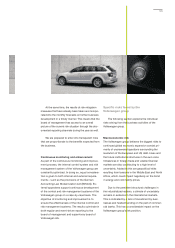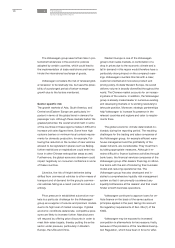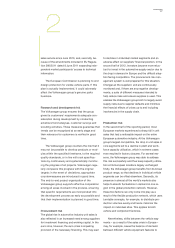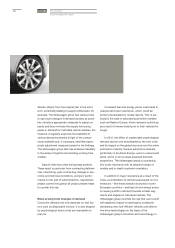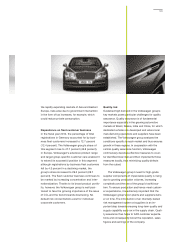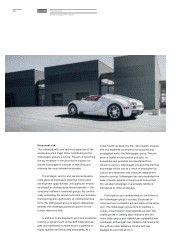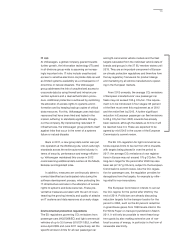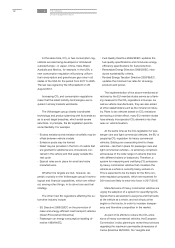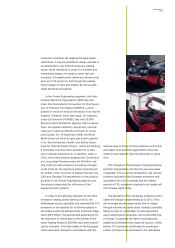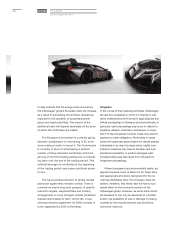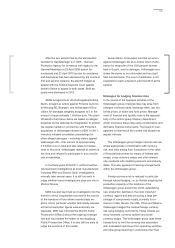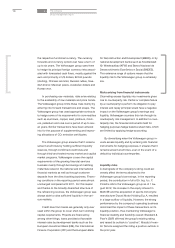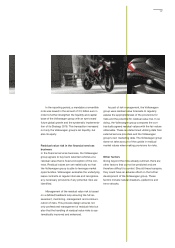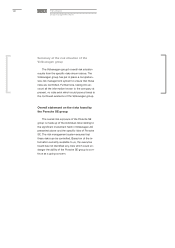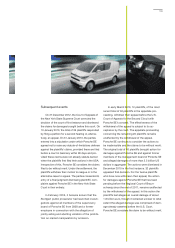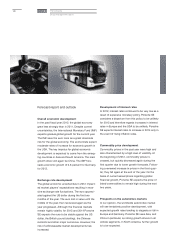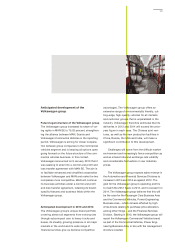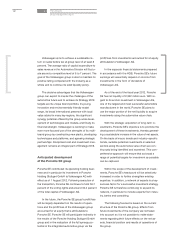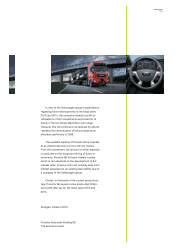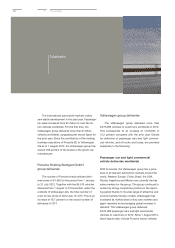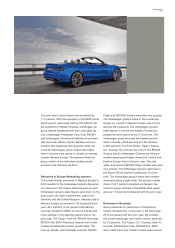Porsche 2012 Annual Report Download - page 139
Download and view the complete annual report
Please find page 139 of the 2012 Porsche annual report below. You can navigate through the pages in the report by either clicking on the pages listed below, or by using the keyword search tool below to find specific information within the annual report.
After the two actions filed by the Verbraucher-
zentrale für Kapitalanleger e.V. (VzfK – German
Protection Agency for Investors) with regard to the
General Meetings on 23 April 2009 (action for
avoidance) and 22 April 2010 (action for avoidance
and disclosure) had been dismissed by the courts of
first and second instance, the plaintiff lodged an
appeal with the Federal Supreme Court against
denial of leave to appeal in both cases. Both ap-
peals were dismissed in 2012.
ARFB Anlegerschutz UG (haftungsbeschränkt),
Berlin, brought an action against Porsche Automo-
bil Holding SE, Stuttgart, and Volkswagen AG for
claims for damages allegedly assigned to it in the
amount of approximately 1.8 billion euro. The plain-
tiff asserts that these claims are based on alleged
breaches by the defendants of legislation to protect
the capital markets in connection with Porsche’s
acquisition of Volkswagen shares in 2008. In 2011,
investors initiated conciliation proceedings for
other alleged damages – including claims against
Volkswagen AG – that amount to approximately
2.6 billion euro in total and also relate to transac-
tions at that time. Volkswagen rejected all claims at
the time and refused to participate in any concilia-
tion proceedings.
In the fiscal years 2010/2011, antitrust authori-
ties launched investigations at truck manufacturers
including MAN and Scania. Such investigations
normally take several years. It is still too early to
judge whether these investigations pose any risk to
MAN or Scania.
MAN has also launched an investigation into the
extent to which irregularities occurred in the course
of the handover of four-stroke marine diesel en-
gines, and in particular whether technically calculat-
ed fuel consumption figures were externally ma-
nipulated. MAN has informed the Munich Public
Prosecution Office (I) about the ongoing investiga-
tion and has handed the matter to the Augsburg
Public Prosecution Office. It is also still too early to
judge the outcome of this matter.
Suzuki Motor Corporation has filed an action
against Volkswagen AG at a London court of arbi-
tration for retransfer of the 19.9 percent interest
held in Suzuki, and for damages. Volkswagen con-
siders the claims to be unfounded and has itself
filed counterclaims. The court of arbitration is not
expected to reach a decision until mid-2013 at the
earliest.
Strategies for hedging financial risks
In the course of the business activities of the
Volkswagen group, financial risks may arise from
changes in interest rates, exchange rates, raw ma-
terials prices, or share and fund prices. Manage-
ment of financial and liquidity risks is the responsi-
bility of the central group Treasury department,
which minimizes these risks using nonderivative and
derivative financial instruments. The board of man-
agement is informed of the current risk situation at
regular intervals.
The Volkswagen group hedges interest rate risk,
where appropriate in combination with currency
risk, and risks arising from fluctuations in the value
of financial instruments by means of interest rate
swaps, cross-currency swaps and other interest
rate contracts with matching amounts and maturity
dates. This also applies to financing arrangements
within the Volkswagen group.
Foreign currency risk is reduced in particular
through natural hedging, i.e. by flexibly adapting the
production capacity at the locations of the
Volkswagen group around the world, establishing
new production facilities in the most important
currency regions and also procuring a large per-
centage of components locally, currently for in-
stance in India, Russia, the USA, China and Mexico.
Volkswagen hedges the residual foreign currency
risk using hedging instruments. These include cur-
rency forwards, currency options and cross-
currency swaps. The Volkswagen group uses these
transactions to limit the currency risk associated
with forecasted cash flows from operating activities
and intra-group financing in currencies other than
135


